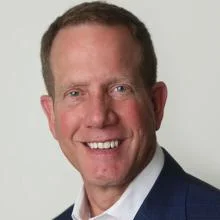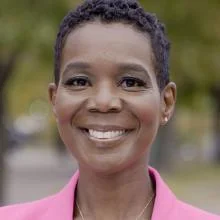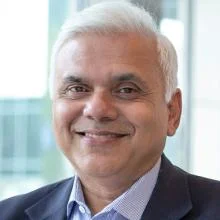Emotional intelligence (EQ) is a must-have core skill for leaders, but it’s not always easy to develop. It’s not something you can learn from a single workshop or book. It takes time, ongoing practice, and years of self-reflection to get right. But this work comes with a big payoff, says Mike McGuire, chief operations & CTO of Delta Dental of MN and president of Abōva Technologies.
“Effective leadership requires a broad range of EQ skills, all of which include ongoing practice and patience. As these skills become foundational to your leadership approach, team members will be inspired and will naturally develop a deeper level of loyalty to you, the team, and the organization. It not only defines your ability to understand and manage your emotions as a leader but influences the response and emotions of those around you,” says McGuire.
We asked CIOs who recently won the 2021 Twin Cities CIO of the Year ORBIE Awards how they are personally nurturing their emotional intelligence skills. The awards were presented by the Twin Cities CIO Leadership Association, a professional community that annually recognizes CIOs for their excellence in technology leadership.
Read on for their advice for other IT leaders who are looking to build their own EQ and foster this skill in their team.
EQ is about asking the right questions
Leadership CIO of the Year

Alan Abramson, CIO (retired), HealthPartners: Recently, I have been focusing on achieving better balance among three domains of personal leadership: thinking, doing, and feeling. Of the three, feeling is the one that, for me, represents the most opportunity for improvement. Over the years, I have received positive feedback for my strategic thinking, calmness under pressure, effective problem-solving, project management, and administration skills. Rarely have I received feedback on my EQ. So, I set out to find advice from others more skilled in this area.
Here are a few questions I have discovered on my journey toward improved emotional intelligence. When each member of a team can answer these questions for themselves, the team can move forward to address other issues.
-
Awareness. Can I name the different emotional states/moods I am experiencing?
-
Outcome. Do I observe the effect my emotional expressions have on others, either positively or negatively?
-
Intent. Am I using my emotional leadership skill for influence and motivation or for control and power?
-
Empathy. When I find another person’s emotional reaction to events is different from mine, do I seek to understand or seek to correct?
[ See our related article: 8 powerful phrases of emotionally intelligent leaders. ]
EQ requires self-awareness and reflection
Super Global CIO of the Year

Robin Brown, CIO, Protein North America, Cargill: As I’ve matured my emotional intelligence, I’ve learned to observe how I adapted my leadership style to different situations and audiences. Sometimes I didn’t put my best self forward because I let my emotions drive how I showed up and handled certain situations. But as I matured, I learned to lean in and be curious when I didn’t necessarily agree with the approach that was being taken. It helped me replace those emotions with leading questions that fostered a safe space to share different perspectives. I look around the room and read body language to see if there are people withholding their perspectives or possibly being talked over and not able to share their perspectives because there are louder voices in the room.
I ask for feedback on my leadership and how I show up in meetings or situations. I listen to feedback that is graciously given to me, reflect on areas where I could do better and pivot to make those changes in my own behavior. I’ve learned through the years that my own behavior, style and words can impact those around me so it’s important to anticipate outcomes due to actions that I may take. Lastly, I’ve learned to take total ownership for my own actions and those of my team. We win and lose as a team. No one should ever be on an island alone holding the white flag. All of these learnings evolve over time and it takes self-awareness and reflection to foster your own emotional intelligence.
Display clarity of purpose
Global CIO of the Year

John Pelant, EVP & CTO, CWT: There are a number of elements of EQ that I try to implement as a leader and amongst our organization. I strive to be clear and decisive in decision making and requests, to show the organization that with the complexity of our daily lives, clarity of purpose is the best approach. I lead by example, and demonstrate that I am fully focused on getting the job done. Just as important is leading with empathy and ensuring approachability. I also demonstrate confidence in the team’s abilities and apply consistency and fairness in my approach.
By using these as guiding principles, I believe we can collectively manage emotional responses to events and pressures, and enable teams that feel empowered to achieve their true potential, again and again.
Practice empathy and active listening
Enterprise CIO of the Year

Mike McGuire, Chief Operations & CTO, Delta Dental of MN; President, Abōva Technologies: My personal EQ journey started with a focus on self-awareness and an understanding of how my emotions can impact my behaviors and the reactions and results of those around me. Self-awareness serves as a foundational component of self-regulation and combines the discipline and awareness of always having a conscious choice in how you react to every situation.
The ability to stay calm in high stress moments will allow you to respond constructively and express yourself appropriately. This results in employee trust from a predictable, fair and thoughtful leadership approach and decision making process. Practice empathy by putting yourself in other people’s shoes. Leverage active listening to understand their points of view and educate yourself on the challenges and obstacles they face. Focus on reading emotional cues such as voice tone, word choice and body language.
Building EQ requires curiosity and a desire to learn
Large Corporate CIO of the Year

Jamie Thingelstad, SVP & CTO, SPS Commerce: Nurturing EQ takes time and a curious spirit. For me, that means asking a lot of questions, reading books on the topic, and pursuing thoughtful discussions. These experiences educate me, boost my EQ and make me a better leader. I encourage anyone in technology to seek opportunities to practice leadership skills, especially those in EQ. One of the best ways is to step outside of their company and become an active member of a local tech organization. In these venues, leadership is earned and available to anyone at any point in their career. Since entering the field, I have spent a lot of my time in leadership roles across the Minnesota technology community. It’s been invaluable.
Lastly, I recommend finding an EQ model that helps bring learning into practice. At SPS, we use Insights Discovery as our preferred model. I love how you can put Insights Discovery to work in a team setting, and I’ve seen hundreds of people get immediate value and improve communication with colleagues instantly. Remember that as a leader it is your job to adapt your communication preferences to your team, not the other way around. This perspective demands an understanding and embodiment of EQ.
EQ means knowing your purpose - and helping others find theirs
Nonprofit/Public Sector CIO of the Year

Sharon Kennedy-Vickers, CIO, City of Saint Paul: I believe a main component of emotional intelligence is self-awareness. The better you can recognize your own triggers and motivators, the better you can manage difficult scenarios and inspire others. For me, being self-aware means that I know my purpose and what motivates me to keep striving for excellence. I’ve put the time into self-exploration to pinpoint this purpose: to use my skills to help individuals, primarily marginalized, gain access to the resources needed for them to fully realize their purpose.
I help each employee to identify their purpose by creating an environment that encourages them to ask hard questions, take manageable risks, and fail fast. I also strive to create an environment where employees can bring their whole selves to work and feel free to contribute their valued perspectives. I believe you can achieve true innovation when passionate, driven people are empowered to bring their diverse set of lived experiences, perspectives, and backgrounds together.
Focus on others as much as yourself
Education CIO of the Year

Rahoul Ghose, CIO, ECMC Group: I try to live through a few basic principles that help me continually develop and grow my emotional intelligence. Foremost among them is to be self-aware by not trying to be the “smartest person in the room,” which encourages the free flow of ideas and constructive feedback, especially when you are the senior leader in the group. Equally important is to be empathetic, listen more than talk and, whenever possible, use talk-time to build on others’ ideas.
This approach creates a supportive group dynamic, helps others feel acknowledged, fosters inclusion and keeps the team motivated to strive for excellence. I also place a lot of value on one-on-one interactions to help build relationships. For me, this has been the fundamental means to building trust and gaining alignment even in the most difficult of situations. This brings me back to the core element of self-awareness and having a clear view of what is important to you – i.e. what you want to stand for versus let go. I believe this understanding particularly helps in times when you need to be assertive in order to get something done.
[ Get exercises and approaches that make disparate teams stronger. Read the digital transformation ebook: Transformation Takes Practice. ]






